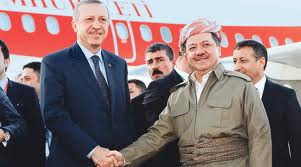 | ||
| Project image from Akkuyu Nuclear Power Plant of Turkey |
Asian countries are closer to winning a bid to build Turkey's second nuclear power plant near the Black Sea city of Sinop, the Turkish energy minister said on Tuesday, in a signal that Canada was no longer in the running.
"Even though we have not reached a final agreement right now, I can say that Far Eastern countries are closer" to winning the tender on the building of a second reactor, Taner Yildiz was quoted as saying by the Anatolia news agency. Ankara is officially in negotiations with China, Japan, South Korea and Canada to build the second nuclear reactor. The government plans to build three nuclear power plants within five years in hopes of preventing a possible energy shortage and reducing dependence on foreign energy supplies.
Turkey struck a deal with Russia in 2010 to build the country's first power plant at Akkuyu in the southern Mersin province.
Yildiz said Tuesday that there was no agreement yet on the location of a third reactor but added that the town of Igneada in the Black Sea region near the Bulgarian border was one of the options.
Source: http://www.hurriyetdailynews.com/asian-bids-closer-to-winning-turkey-nuclear-plant-project.aspx?pageID=238&nID=37612&NewsCatID=348
































